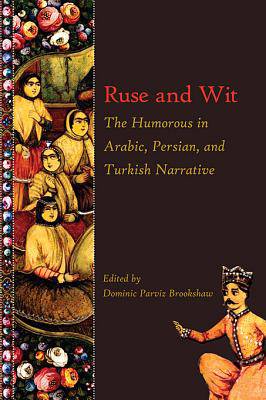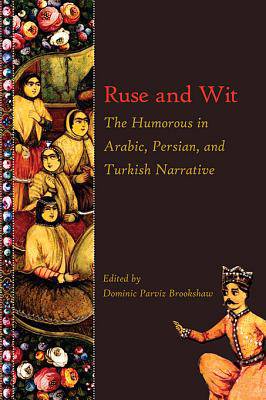
- Afhalen na 1 uur in een winkel met voorraad
- Gratis thuislevering in België vanaf € 30
- Ruim aanbod met 7 miljoen producten
- Afhalen na 1 uur in een winkel met voorraad
- Gratis thuislevering in België vanaf € 30
- Ruim aanbod met 7 miljoen producten
Zoeken
€ 33,95
+ 67 punten
Omschrijving
The essays in Ruse and Wit examine in detail a wide range of texts (from nonsensical prose, to ribald poetry, titillating anecdotes, edifying plays, and journalistic satire) that span the best part of a millennium of humorous and satirical writing in the Islamic world, from classical Arabic to medieval and modern Persian, and Ottoman Turkish (and by extension Modern Greek). While acknowledging significant elements of continuity in the humorous across distinct languages, divergent time periods, and disparate geographical regions, the authors have not shied away from the particular and the specific. When viewed collectively, the findings presented in the essays collected here underscore the belief that humor as evidenced in Arabic, Persian, and Turkish narrative is a culturally modulated phenomenon, one that demands to be examined with reference to its historical framework and one that, in turn, communicates as much about those who produced humor as it does about those who enjoyed it.
Specificaties
Betrokkenen
- Uitgeverij:
Inhoud
- Aantal bladzijden:
- 172
- Taal:
- Engels
- Reeks:
Eigenschappen
- Productcode (EAN):
- 9780674066700
- Verschijningsdatum:
- 8/10/2012
- Uitvoering:
- Paperback
- Formaat:
- Trade paperback (VS)
- Afmetingen:
- 150 mm x 226 mm
- Gewicht:
- 294 g

Alleen bij Standaard Boekhandel
+ 67 punten op je klantenkaart van Standaard Boekhandel
Beoordelingen
We publiceren alleen reviews die voldoen aan de voorwaarden voor reviews. Bekijk onze voorwaarden voor reviews.










